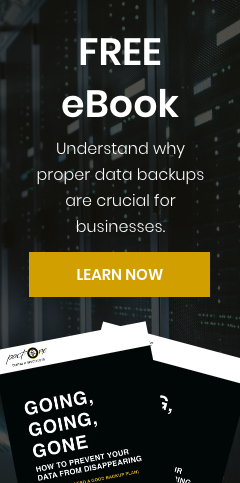Advances in technology have streamlined many processes for dental clinics, from appointment bookings to payments. The ease and convenience granted by online platforms, however, comes at a cost — and it comes in the form of risk that one must be aware of and mitigate accordingly.
Any action taken online leaves a trace, and the traces they leave function as data that can be processed and analyzed by anyone who has access to them. Some data, such as what actions were taken and when, can provide deep insight to the facilitators of online platforms or websites about user behaviors and trends, at little to no cost to the users that generated the data. Meanwhile, other records including personal information, are much more sensitive due to the repercussions they might have on individuals if made publicly available. This data is thus regulated by strict rules and zealously safeguarded by the entities that do have access to them.
Dental information such as patient conditions and dental history falls squarely into this category of sensitive information. Unfortunately, despite the protection of the law, there are entities out there who will employ illicit means to acquire such valuable data from its caretakers. It’s thus crucial that dental practices take measures to ward off such insidious parties and attackers who would seek to acquire this information in order to monetize it. Pact-One Solutions has compiled the following tips for a dental practice to follow to make this happen.
Put technical controls in place
The first step to take is to ensure that the hacking or illegal data acquisition process is as difficult as possible for potential cyber criminals from a technical perspective. While not all dental practices will have dedicated IT professionals on staff, outsourcing IT capabilities to a specialized third party, such as Pact-One, or on an ongoing basis can be a worthwhile investment.
Measures IT professionals can take include ensuring all software being used for business processes are trusted and verified and receive regular updates to ensure they’re protected against the latest hacking techniques. They may also recommend the utilization of cloud services where appropriate, as these can be more secure than traditional on-site models.
Establish stringent access restrictions
Protecting data primarily involves restricting access to it. This means using identity and access management software to limit access to protected health information (PHI) and other sensitive data based on the user, their device, and their location. Ideally, every dental practice should practice the principle of least privilege in which employees are given the minimal levels of access privileges to data and applications required to do their job. An orthodontist, for instance, should be authorized to access a patient’s medical records and X-rays but given limited access to their financial information. This significantly reduces the risk of data leaks and minimizes the potential damage if a cybercriminal manages to infiltrate company accounts.
Move away from passwords
Passwords are a familiar and convenient means of verifying user identities. However, they are also among the easiest for cybercriminals to crack, with some algorithms they utilize able to run through thousands of possible combinations within seconds.
Thankfully, biometric and two-factor authentication is becoming more and more accessible and less intrusive, thanks to advances in technology. Fingerprint verification using modern mobile phones and two-factor authentication via SMS or applications like Microsoft Authenticator can be feasibly built into authentication processes, and spell the difference between a secure and compromised system.
Educate employees
More often overlooked but no less important is the creation of a culture of awareness and vigilance against the threat of cybercrime. Many cyberattacks, like phishing, exploit the human element of data security, and it’s essential that every member of a practice, from administrators to the dentists themselves, have the knowledge and training needed to guard themselves and the business against them. This includes knowing how to spot fraudulent emails, not to click on links without verifying their source, and what to do in the event of a suspected attack.
Data security requires dedicated effort and investment but is ultimately worth the cost financially and in terms of fulfilling your obligation to your patients. Reach out today to jump-start your practice’s data security capabilities.
Dental IT. Remove the Burden. Embrace the Use.
Quality patient care – it's ultimately why you became a dental professional. But, some business operations can get in the way (such as pesky computer issues or lack of IT support). That’s where Pact-One Solutions can help! Our passion lies in supplying reliable, responsive dental IT support and security that practices can count on.
Whether you’re looking for dental IT services for your startup or searching for more responsive dental IT support – our team of dental IT specialists have you covered. With team members throughout the United States, we offer nationwide support to dental practices of all sizes. Our wide range of dental IT services ensure your data is secure, accessible, and protected.
Don't let technology challenges hinder your ability to deliver exceptional dental care. Contact us at info@pact-one.com or 866-722-8663 to join 350+ dental practices thriving with the support of a dedicated dental IT team.


